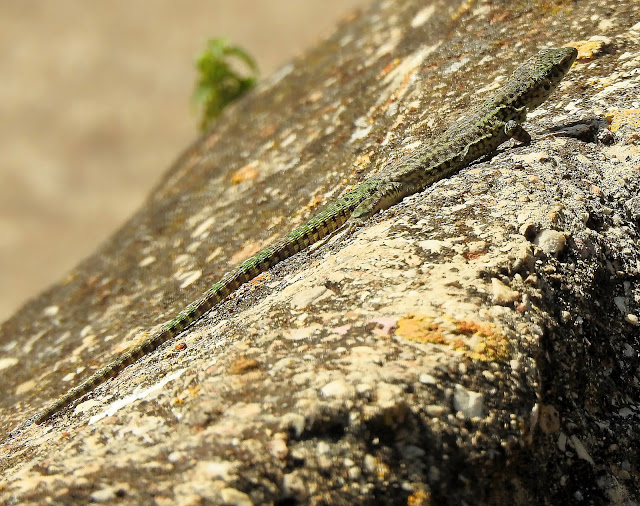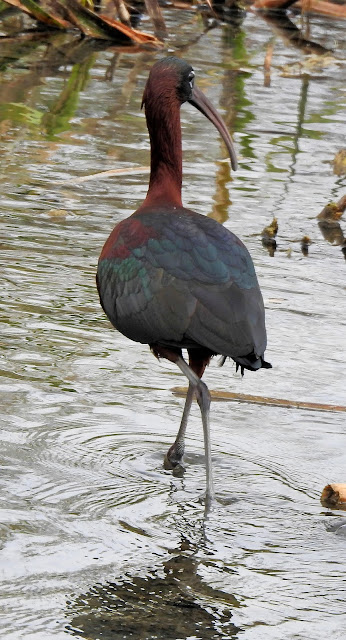This Blog contains Wildlife and Bird Photos from Walks, Safaris, Birding Trips and Vacations. Most of the pictures have been taken with my Nikon P900 and P950X cameras. On the right of the page are labels for each species of Bird/Animal etc. Click on a label to show all of the photos taken for that species. Information for each species is from Wikipedia. Just click on any image for a large picture.
TOTAL PAGEVIEWS
TRANSLATE
Saturday, 3 April 2021
Friday, 2 April 2021
Thursday, 1 April 2021
29-3-2021 BIOPARC, VALENCIA - DUMERIL'S BOA (Acrantophis dumerili)
Acrantophis dumerili, commonly known as Dumeril's boa, is a species of non-venomous snake in the family Boidae. The species is endemic to Madagascar. No subspecies are currently recognized.
Adults of A. dumerili usually grow to 6.5 feet (2 m) in total length (including tail) with the maximum reported to be 8 foot, 6 inches (259 cm). Males usually have longer skinnier tails, while females tend to be larger overall.
A. dumerili is found on Madagascar. The type locality given in the original description is "Amérique mérid. ?", which is later given as "?" by Jan (1863).
Along the western coast and southwestern regions of Madagascar, it is found in a semi-arid habitat that gets fairly low amounts of precipitation.
The diet of A. dumerili consists of small animals, such as birds, lizards, and small mammals, including juvenile lemurs. It is also known to prey on other snakes.
In A. dumerili sexual maturity is reached within 3 to 5 years of age. Males have anal spurs, which are used in courtship. The mating season is March through May, and the young are born some 6 to 8 months later. Ovoviviparous, females give birth to a litters of 6-28. Neonates are 12-18 inches (30–46 cm) long.
Once exported from Madagascar in great numbers, trade in A. dumerili has since been heavily restricted. The species is, however, quite prolific in captivity, and captive bred individuals are easy to find in the exotic pet trade. Though its size makes it more suited to someone experienced with large constrictors, it has a typically docile nature, and readily feeds on rats. The main concern is that it is prone to stress, which can sometimes cause it to stop eating or can contribute to other health issues.
Wednesday, 31 March 2021
Subscribe to:
Posts (Atom)




















































